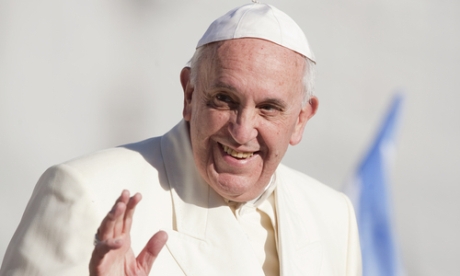Pope Francis is to convene a meeting of faith leaders to address climate change issues ahead of two international summits next year.
An encyclical on the environment, which will also address climate change, is expected from Francis next year.
Bishop Marcelo Sánchez Sorondo, chancellor of the Pontifical Academy of Sciences, said the encyclical would be produced in time to influence “next year’s crucial decisions”.
There is a meeting next September at the United Nations to draft the Sustainable Development Goals and another gathering on climate change in Paris in December.
On the planned papal meeting, the bishop said the Pope wanted to bring leaders of the main religions together “to make all people aware of the state of our climate and the tragedy of social exclusion”.
Bishop Sorondo said the problems for the natural world have been exacerbated by the fact economic activity is only measured according to gross domestic product.
This “does not take into account the degradation of the earth” or “the unjust inequalities between countries and within countries”.
Bishop Sorondo told The Tablet: “The Pope is very aware that the consequences of climate change affect all people, but especially the poor. This is the moral consequence, the moral imperative.”
At a recent APEC meeting, the United States and China committed to climate change emissions reduction targets.
New Zealand expects to set a 2020 target for carbon emission reductions early next year, Prime Minister John Key said.
In September, an article in the journal Science argued that engaging religious leaders, rather than relying on politicians, could hold the key to mobilising billions of people around the world to change aspects of their lifestyles to help prevent catastrophic climate change.
The article singled out Pope Francis and the Catholic Church as the key, but called for religious leaders of every stripe to be recruited.
It argued that religion can provide a unique combination of “moral leadership” and global organisational structures required to bring about practical changes which could have an immediate effect.
One example suggested is providing millions of the world’s poorest people with cleaner forms of fuel.
Sources
